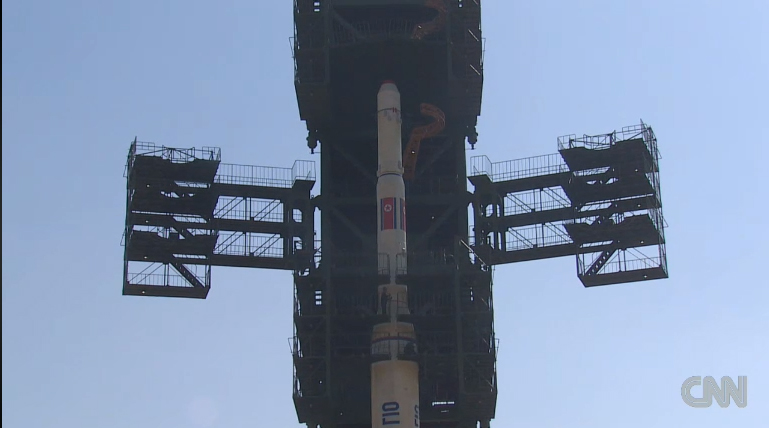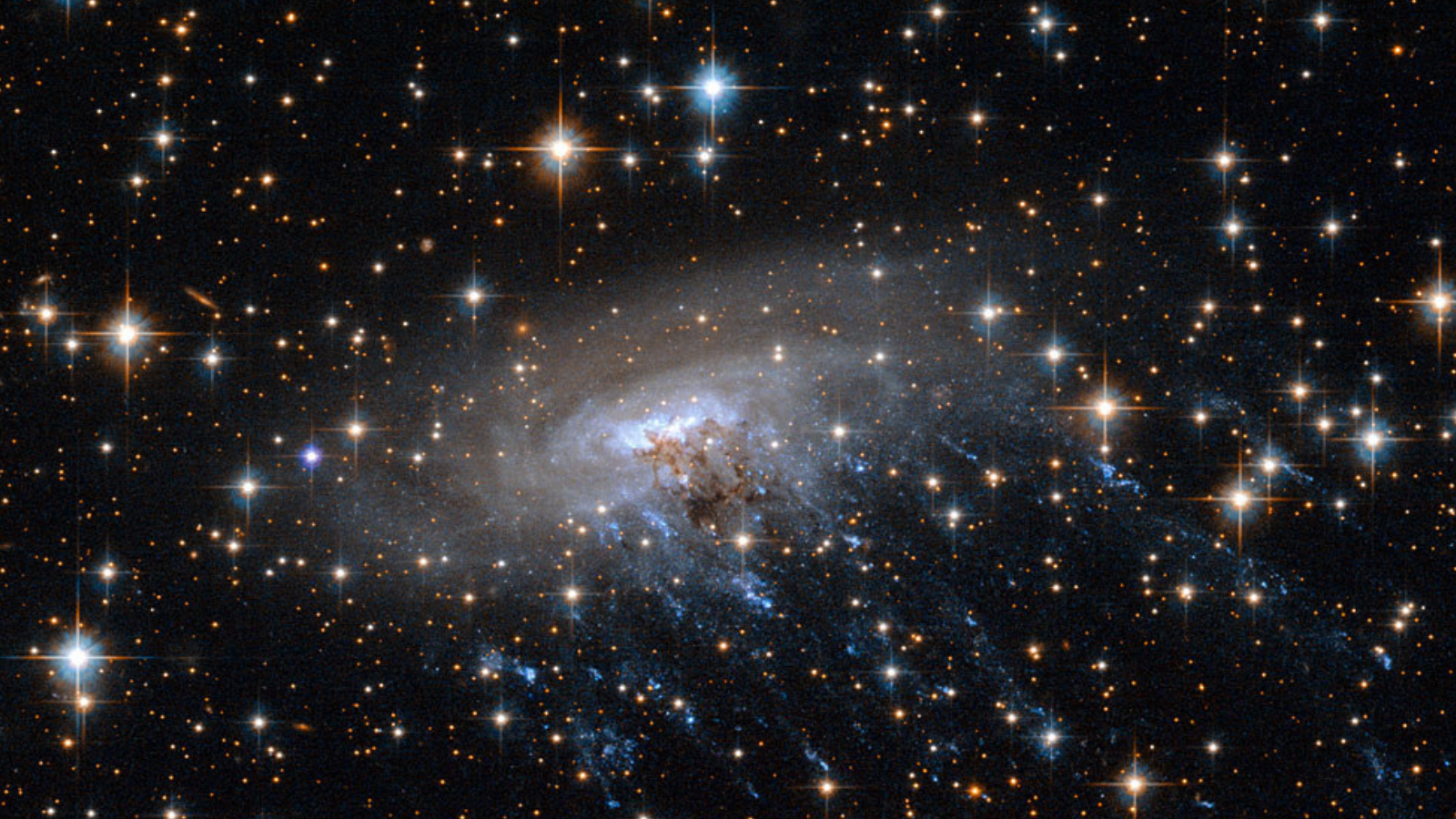North Korea Fueling Long-Range Rocket for Defiant Launch

Breaking space news, the latest updates on rocket launches, skywatching events and more!
You are now subscribed
Your newsletter sign-up was successful
Want to add more newsletters?

Delivered daily
Daily Newsletter
Breaking space news, the latest updates on rocket launches, skywatching events and more!

Once a month
Watch This Space
Sign up to our monthly entertainment newsletter to keep up with all our coverage of the latest sci-fi and space movies, tv shows, games and books.

Once a week
Night Sky This Week
Discover this week's must-see night sky events, moon phases, and stunning astrophotos. Sign up for our skywatching newsletter and explore the universe with us!

Twice a month
Strange New Words
Space.com's Sci-Fi Reader's Club. Read a sci-fi short story every month and join a virtual community of fellow science fiction fans!
North Korea has reportedly begun fueling its new long-range rocket for what it says is a benign satellite launch, despite continuing condemnation by the United States and other countries, which see the flight as a defiant missile test.
The rocket, called Unha-3 (Galaxy-3), could potentially launch as early as Thursday (April 12) to mark the 100th anniversary of the birth of North Korea's founder, Kim Il Sung. North Korean officials have maintained the rocket will launch a small Earth-observing satellite, but observers in the United States, South Korea, Japan and other countries see the move as a military weapons test in disguise.
"Let me make absolutely clear that any launch by North Korea would be a serious, clear violation of their obligations under already-existing U.N. Security Council resolutions 1718 and 1874," U.S. Secretary of State Hilary Clinton told reporters Tuesday (April 10) after a meeting with Japanese Foreign Minister Koichiro Gemba in Washington, D.C.
The United Nations resolutions prohibit North Korea from pursuing military missile launch tests. [Images: North Korea's Rocket Program]
But the reclusive country appears to remain committed to launching the Unha-3 rocket. North Korean space officials began loading the long-range rocket with fuel today and appeared defiant in the face of unwavering foreign criticism, according to Reuters news service.
North Korea's Unha-3 rocket is a three-stage booster that stands about 100 feet (30 meters) tall. In photos obtained during a rare presentation to foreign reporters, the rocket appears as a white booster with red detailing (including nose cone) with North Korea's flag and other national markings emblazoned along its exterior.
The rocket will lift off from North Korea's new launch site near the village of Tongchang-ri in the country's northwest, about 35 miles (50 kilometers) from the city of Dandong on the Chinese border. The Unha-3 rocket is expected to launch on a southward trajectory, with its third stage dropping into the ocean near the Philippines, according to press reports.
Breaking space news, the latest updates on rocket launches, skywatching events and more!
North Korean space officials have said the rocket will launch the Kwangmyongsong-3, which translates to Bright Shining Star-3. The satellite is reportedly an Earth-watching spacecraft designed to monitor weather conditions and provide imagery to aid disaster relief and other services.
The Unha-3 rocket flight will mark the third attempted space launch by North Korea. The country claimed its most recent attempt, the 2009 test of the two-stage Unha-2 rocket, succeeded in launching a satellite, but outside observers reported no evidence that any craft reached orbit and concluded it failed.
Clinton said any launch will likely be followed by a coordinated international response.
"We are consulting closely in capitals and at the United Nations in New York, and we will be pursuing appropriate action," Clinton said. "But I would just underscore that if North Korea wants a peaceful, better future for their people, it should not conduct another launch that would be a direct threat to regional security."
You can follow SPACE.com Managing Editor Tariq Malik on Twitter @tariqjmalik. Follow SPACE.com for the latest in space science and exploration news on Twitter @Spacedotcom and on Facebook.

Tariq is the award-winning Editor-in-Chief of Space.com and joined the team in 2001. He covers human spaceflight, as well as skywatching and entertainment. He became Space.com's Editor-in-Chief in 2019. Before joining Space.com, Tariq was a staff reporter for The Los Angeles Times covering education and city beats in La Habra, Fullerton and Huntington Beach. He's a recipient of the 2022 Harry Kolcum Award for excellence in space reporting and the 2025 Space Pioneer Award from the National Space Society. He is an Eagle Scout and Space Camp alum with journalism degrees from the USC and NYU. You can find Tariq at Space.com and as the co-host to the This Week In Space podcast on the TWiT network. To see his latest project, you can follow Tariq on Twitter @tariqjmalik.
